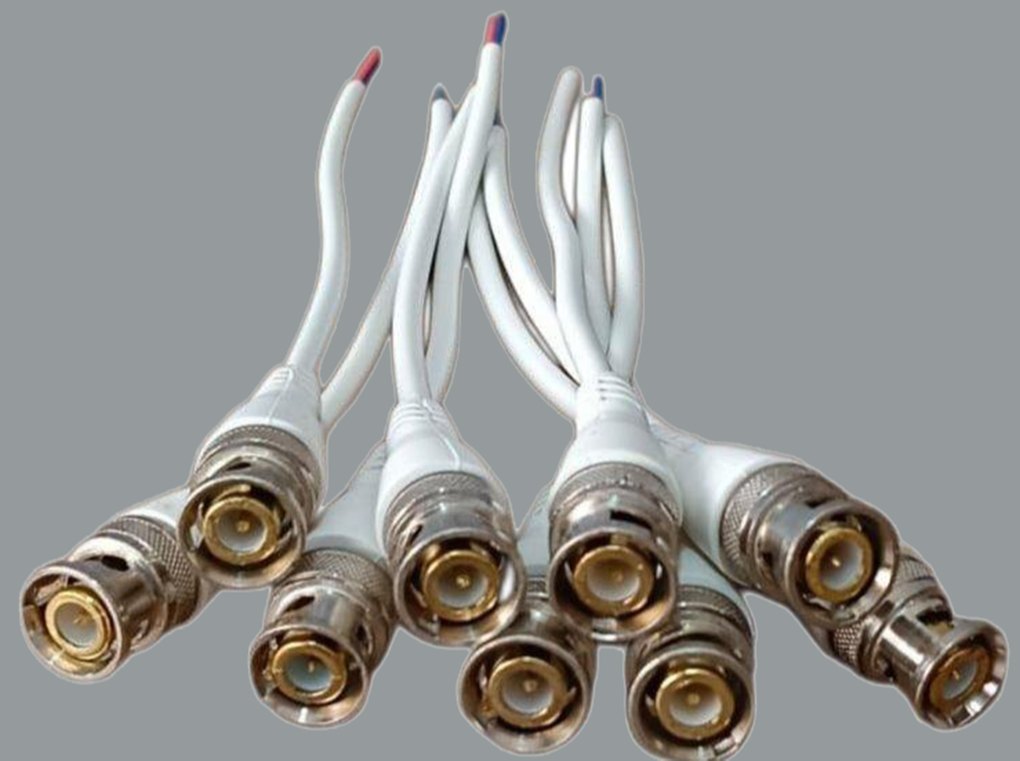
The BNC (Bayonet Neill-Concelman) connector is a widely used coaxial RF connector that has become a staple in the world of electronics and telecommunications. Known for its quick-connect/disconnect feature, the BNC connector is commonly used in applications requiring secure and reliable signal transmission. This article explores the various types of BNC connectors, their uses, and factors affecting their price.
What is a BNC Connector?
The BNC connector is a miniature quick-connect RF connector used for coaxial cables. It features a bayonet-style locking mechanism, which ensures a secure connection and prevents accidental disconnection. The connector is designed to maintain the shielding of the coaxial cable, making it ideal for high-frequency signal transmission. BNC connectors are commonly used in video, radio, and networking applications, including CCTV systems, test equipment, and amateur radio setups.
Key Features of BNC Connectors
-
Bayonet Locking Mechanism: The BNC connector’s unique bayonet design allows for quick and secure connections, making it easy to install and remove.
-
50-Ohm and 75-Ohm Versions: BNC connectors are available in two impedance versions: 50-ohm for RF applications and 75-ohm for video and audio applications.
-
Durability: Made from high-quality materials like brass, stainless steel, and nickel, BNC connectors are built to withstand harsh environments.
-
Wide Frequency Range: BNC connectors can handle frequencies up to 4 GHz, making them suitable for high-frequency applications.
Types of BNC Connectors
BNC connectors come in various types to suit different applications. Below are the most common types:
-
BNC Plug: The male version of the connector, designed to attach to a BNC jack. It is commonly used to terminate coaxial cables.
-
BNC Jack: The female version of the connector, typically found on devices or equipment.
-
BNC Barrel Connector: Used to connect two BNC cables together, extending the length of the connection.
-
BNC T-Connector: A three-port connector that allows for branching connections, often used in networking and video applications.
-
BNC Terminator: Used to terminate open ports in a network to prevent signal reflection and interference.
-
BNC Crimp Connector: Requires a crimping tool for installation, providing a secure and durable connection.
-
BNC Twist-On Connector: Easy to install without tools, making it ideal for quick setups.
-
BNC Compression Connector: Offers superior performance and durability, often used in high-frequency applications.
Applications of BNC Connectors
BNC connectors are versatile and used in a wide range of industries. Some common applications include:
-
CCTV Systems: BNC connectors are widely used in security cameras and surveillance systems for transmitting video signals.
-
Broadcasting: They are used in radio and television broadcasting equipment for reliable signal transmission.
-
Test and Measurement: BNC connectors are commonly found in oscilloscopes, signal generators, and other test equipment.
-
Networking: They are used in Ethernet networks and other data communication systems.
-
Amateur Radio: BNC connectors are popular among ham radio operators for their ease of use and reliability.
Factors Affecting BNC Connector Price
The price of BNC connectors can vary significantly depending on several factors. Here are some key considerations:
-
Type of Connector: Different types of BNC connectors have different price points. For example, BNC crimp connectors are generally more affordable than compression connectors.
-
Impedance: 50-ohm and 75-ohm connectors may have different prices due to their specific applications and manufacturing processes.
-
Material Quality: Connectors made from high-quality materials like stainless steel or gold-plated brass tend to be more expensive.
-
Brand: Well-known brands often charge a premium for their products due to their reputation for quality and reliability.
-
Quantity: Bulk purchases typically offer cost savings compared to buying individual connectors.
-
Performance Specifications: Connectors designed for high-frequency or harsh environments may cost more due to their advanced features.
Average BNC Connector Price Range
The price of BNC connectors can range from as low as 20 for high-performance or specialized connectors. Here’s a general breakdown:
-
Basic BNC Connectors: 5 per unit
-
Mid-Range BNC Connectors: 10 per unit
-
High-End BNC Connectors: 20+ per unit
Tips for Choosing the Right BNC Connector
-
Determine the Application: Choose a connector that matches the specific requirements of your application, such as impedance and frequency range.
-
Check Compatibility: Ensure the connector is compatible with your cables and equipment.
-
Consider Durability: For harsh environments, opt for connectors made from durable materials like stainless steel.
-
Evaluate Installation Method: Decide whether you need crimp, twist-on, or compression connectors based on your installation preferences.
-
Compare Prices: Shop around to find the best deal without compromising on quality.
Conclusion
The BNC connector is a versatile and reliable solution for a wide range of applications, from video surveillance to high-frequency signal transmission. With various types available, it’s essential to choose the right connector for your specific needs. Factors such as impedance, material quality, and performance specifications can influence the price, so it’s important to balance cost with functionality. Whether you’re setting up a CCTV system or working with test equipment, the BNC connector offers a secure and efficient connection for your coaxial cables.
By understanding the different types of BNC connectors and their uses, you can make an informed decision and ensure optimal performance for your projects. With a wide range of options and price points, there’s a BNC connector to suit every need and budget.